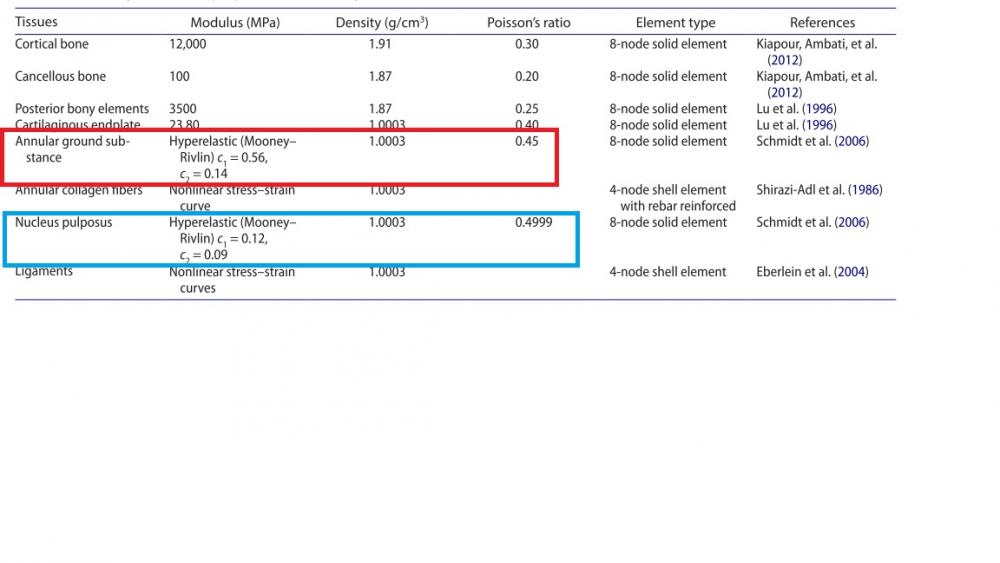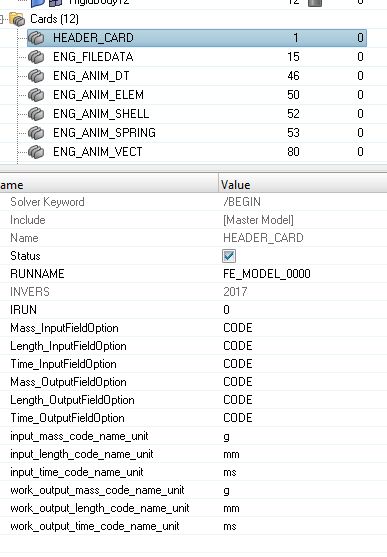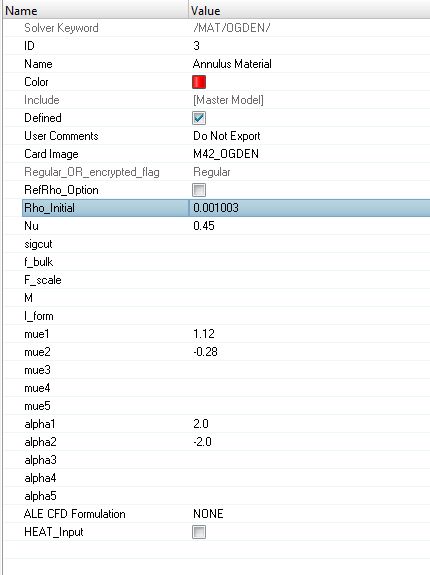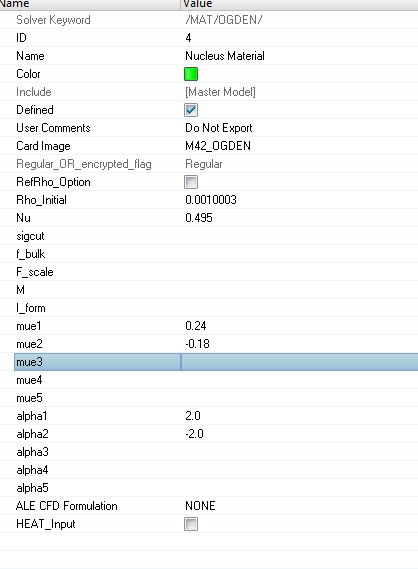Hi George,
I'm using Mooney Rivlin Material from the literature. My issue is that my material deformation is linear, but it should be non-linear. I'm now starting to mistrust that I set up everything correctly. Is the following correct:
This is the input from the literature:
<?xml version="1.0" encoding="UTF-8"?>
This is my unit-system:

And this are my material cards:


What I'm not 100% sure. Is the calculation C1-> mue1 and C2->mue2 correctly done? Are mue1 and mue2 really unit independent?
Best regards,
J